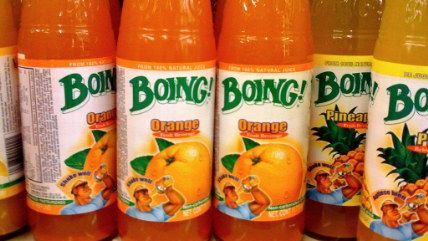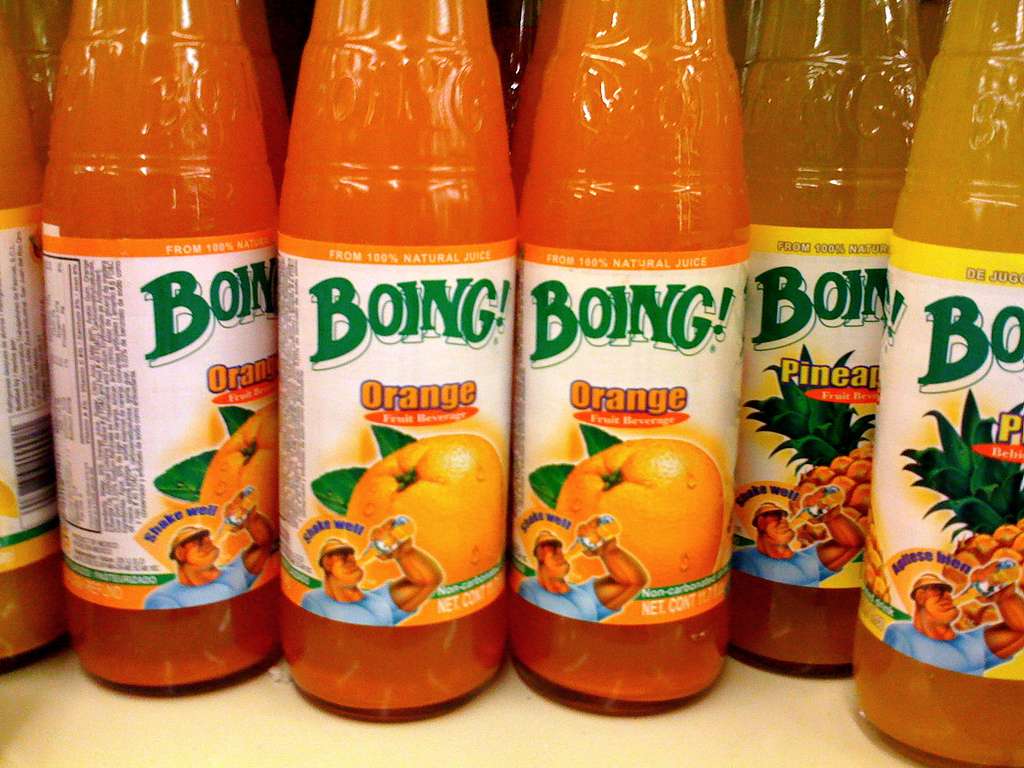Is Mexico's Soda Tax Really Working?
Can we really say taxes that reduce consumption but aren't reducing obesity are effective?


Mexico has become the most obese country in the world. In a purported effort to combat the problem, the country implemented a one-peso-per-liter excise tax on sugar-sweetened beverages in January 2014.
That tax, supporters claim, is working.
A 2015 working paper by University of Chicago Prof. Jeffrey Grogger found that Mexico's soda taxes raised sugar-sweetened beverage prices by approximately 10 percent.
More recently, a study published last month in the British Medical Journal found between a 6- and 12-percent reduction in purchases of sugary drinks after the law's passage.
That study was funded by Bloomberg Philanthropies—which also provided $10 million to push Mexico to adopt the soda tax in the first place—and the Robert Wood Johnson Foundation, which supports soda taxes.
It's no surprise that a tax on sugary drinks might cut into consumption of those drinks. But there's never been any reason to believe that, say, a 10-percent decrease in the small percentage of the calories people consume (soda accounts generally for around 5 percent) would result in decreases in obesity levels, or in calories consumed.
While the BMJ study notes that "humans do not reduce food intake when consuming caloric beverages"—based on research that shows sugar calories consumed in liquid form don't make people feel full—it's reasonable to conclude that humans also don't reduce caloric intake when not consuming caloric beverages.
They're simply more likely to consume other calories.
"Soda and candy taxes do not necessarily decrease caloric intake," reports the Tax Foundation, which has studied the issue. "One recent study finds that when adolescents switch away from soda due to price increases, the drop in calories is offset by an increase in calories consumed in other food and drink."
Not surprisingly, while the BMJ study shows a reduction in soda consumption, the results aren't crystal clear. For example, the study also indicates bottled-water sales are down by four percent. In a country without adequate sources of clean water, that's a public-health issue.
Critics have blasted the tax. The American Beverage Association points to data showing the reduction in calories equates to a decrease of less than five calories per day. And reports indicate that Mexican lawmakers already "have second thoughts about the soda tax."
There are other problems with the tax, none small.
"The [BMJ] study authors say it's too early to determine for certain whether the tax is really working," writes Time's Alexandra Sifferlin. "The study is observational and cannot prove causality, and other factors, like health campaigns about sugary beverages and economic changes, were also happening simultaneously."
A recent Urban Institute analysis of food and beverage taxes also notes that Mexico's tax "exempt[s] products like orange juice and beer—which have significant sugar content—to focus on soda, teas, energy drinks, and similar beverages." That's practically an invitation to consumers to simply switch from soda to other caloric sources like beer or juice.
"That narrow focus creates substitution opportunities that will weaken the effect of the tax; some consumers, for example, may switch to juices," the Urban Institute authors write.
After all, as Chicago's Prof. Grogger and others note, the purpose of soda taxes is not to raise the price consumers pay for soda. It's not to reduce soda consumption. Rather, the purpose of soda taxes is "[t]o staunch the rise in obesity" among those who live in the taxed area.
Regardless of what else soda taxes might achieve, there's no evidence to date that shows soda taxes reduce obesity.
Let me be clear. Even if such evidence did exist, I'd still oppose soda taxes on the same grounds I'd oppose Doritos taxes, raw milk taxes, bread taxes, or any food taxes that are intended to skew consumer choice. It's on those same grounds that I oppose farm subsidies and other agricultural measures that are at least partially responsible for the glut of cheap sweeteners that are on the market in the first place.
Obesity is a real problem. Food taxes are not a real solution to that problem.
[Editor's note: In a letter to the editor, a representative from the Robert Wood Johnson Foundation (RWJF) took issue with Baylen Linnekin's statement that RWJF "supports soda taxes."
While it is accurate to say that the Robert Wood Johnson Foundation contributed funding to the evaluation of the Mexico soda tax, it is inaccurate to characterize RWJF as a supporter of soda taxes. It is our view that public policies affecting public health should be rigorously evaluated, and that is why we supported the research on Mexico's soda tax. We have not taken a position on the issue of soda taxes, and will not until there is more evidence about the effectiveness of these policies. The Mexico evaluation is an important contribution to the research on this subject, and we were proud to support it, but further data is required before RWJF would consider taking a position on soda taxes.
Linnekin responds:
I'd like to know if RWJF also asked e.g., the NYT to correct the last two sentences of this 2010 article:
Officials of the Robert Wood Johnson Foundation, who had encouraged Save the Children to advocate for soda taxes, are disappointed.
"They were obviously some of the strongest out there working on the issue, and we had such high hopes," said Dwayne Proctor, team director for childhood obesity at the foundation. He said the two groups would continue to work together on other aspects of the obesity fight.
The NYT article notes that RWJF "encouraged" StC with about $3 million in funds.
In addition, Linnekin noted the following passage from an article on the RWJF website titled "Top 10 Signs We Are Building a Culture of Health."
3. Voters pass the nation's first city tax on soda.
In November voters in Berkeley, Calif., passed the nation's very first tax on sugary beverages, including soda—a major contributor to the obesity epidemic. I know what you're thinking—Berkeley. But consider all the trends that started in California!]


Show Comments (176)